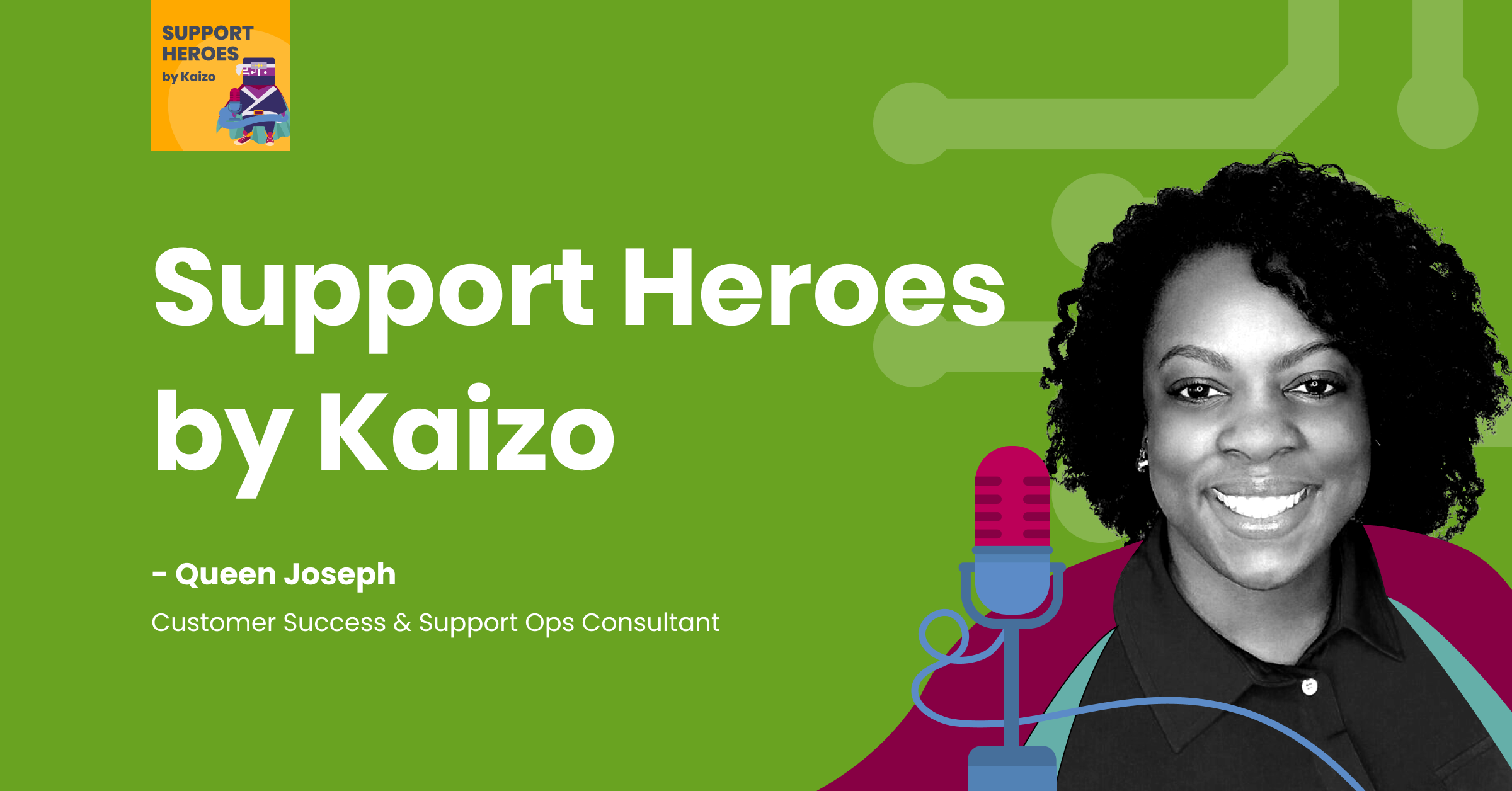Click ‘subscribe’ above to listen or download from Apple Podcast, Spotify, Google Podcast and Amazon Music.
The sixth release of Support Heroes by Kaizo featured Queen Joseph – Customer Success & Support Ops Consultant about building support right from scratch.
In this episode, Queen gives us a unique look at building a support operation from scratch. Taken from her years of experience consulting from ground-0 and building out operations to growth-orientated businesses in California and beyond.
“The common misconception that I run into is thinking that customer support is simply creating a ‘support@’ email address and installing some software…you have to do a little more than that!”
Key Takeaways – 3 Key Facets of a Support Operation
1. The Blueprint/Foundation
2. Tooling and Software
3. Knowledge Base Help Centre
The Blueprint/Foundation
“If you have a good foundation in place early-on, once you hit that growth number…you will be better prepared to handle that massive [increase in] volume”
The first thing Queen does with her clients is answer a set of questions that she refers to as the blueprint-foundation questions…
“One of the most important things I want for my clients, is I want them to have an idea of what sort of service standard they want to provide to their customers”
Having an idea of what you’re striving to achieve makes it easier to make concrete decisions and measure your success. You also need an idea of ‘why’ and ‘how’…
“You can go in and create whatever processes you want to however the tone of communication determines your branding”
Support isn’t often thought of as a branding exercise, however, support can define the perception of a company in the eyes of customer that make contact with support. The brand voice that permeates sales, marketing, PR also permeates support.
“The tone of voice and language used makes a difference…it has to align with their branding”
Tooling, Software & Processes
“I always advise investing in software tools for your customer-facing teams…email alone may be good when you have 50 customers but once you start growing fast you need the right software tools in place to build out those processes and workflows”
Tooling is essential in modern business and customer support is no exception. Queen said herself “it’s never too late but it’s never too early to build out your support operation”. Let your reps do the best job they can by providing them with the tools they need.
“Before I start building out any processes with any client, I always look for the software tools first because the software tools are a part of the processes you will have”
This isn’t a distinct phase from the blueprint- it’s a part of the process. That which you want to achieve, combined with your business use-cases and budget will decide ultimately what software you ought to use.
“When you have a large volume, you need to processes and workflows ready to accommodate that volume.”
Working it out after the fact will only cost more money and time. Moreover, you need your blueprint/foundation documented so that you can build on it while not losing the work you’ve already done.
“…If you have those processes documented, it’s easy to train and onboard customer support reps when hiring…If you don’t have anything in place and you’re hiring people, then they have to figure it out as they go and it becomes a disaster”
The Knowledge Base Help Centre (KBHC)
Building a Knowledge Base Help Centre (KNHC) involves…
“Creating articles to support your customers so they can utilize your product…[they’re] filled with FAQs, best practice tips and ‘how-to’s’”
Having a help centre educates customers on your product. Not only is this a useful thing to have but it benefits supports by a) circumventing customer issues- as customers can fix things themselves, and b) having easy, effective responses ready for your support reps.
“Once you get that KBHC it will reduce the volume of customers you have coming in”
This is otherwise known as proactive support- supporting customers before they call or email. At scale, proactive support ensures that support departments don’t get bloated- needed an excessive amount of reps because customers require so much assistance with the product/service.
“Another thing to implement is a chatbot…[many CRMs] have an option to search the KBHC for [customer] questions. Instead of reaching out to support right away, [customers] can search for their question [themselves]”
This is an especially effective tool for simple queries such as changing account settings or payment methods- things that really support staff don’t need to do for customers and something that customers would want to know how to do themselves anyway.



